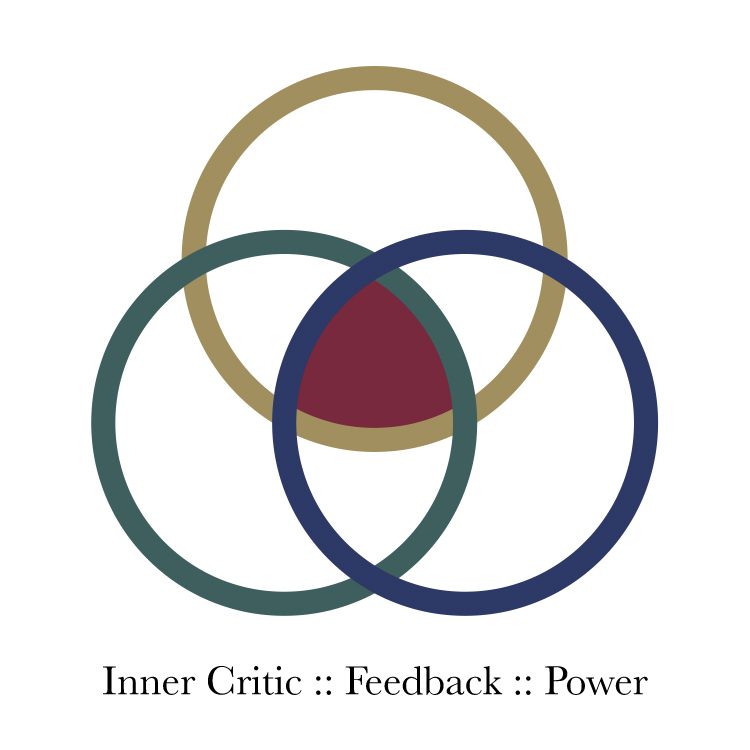To be a good leader, it’s important to be able to access and bring forth the optimal qualities needed in the moment – on a continuum from strength and power to passion and heart. But for many leaders, this clarity is not attainable because too many self-limiting standards and beliefs get in their way.
The intersection of your inner critic, feedback and power.
Another way to look at what makes up a good leader is someone who isn’t run by their inner critic, who is able to give and take feedback from others and who appropriately uses their power. The nexus between these three – inner critic, feedback and power – are the standards and the beliefs that get in our way.
Oftentimes, it starts with standards that were set up in our childhood from which we judge whether we’re meeting the standards or not — are we doing it right or wrong, are we or our actions good or bad, what should we or shouldn’t we do, are we enough or not enough. Ultimately we’re at the mercy of the standards that drive our judge, i.e. our inner critics.
How do you hold or withhold power?
Emanating/Derived from the inner critic are the ways in which we relate to both giving and receiving feedback and how we hold or withhold power – two very key elements of leadership. Too often the art and skill of feedback is not taught so we fall back on whatever standards we learned early or along the way.
Rarely, do leaders give and receive feedback in a productive, even keeled way. Because of preconceived standards, too often leaders fall on one end of the spectrum or another rather than paying attention to what is really in the person’s best interest, that is a good balance between the two. In the spirit of wanting to be positive, leaders too often give “nice” feedback. Or they provide what is considered “constructive” or often negative feedback. The recipients pay the price.
It’s important to know where you really stand.
When you only hear positive feedback, you don’t know where you really stand and when you only hear negative feedback you may feel harshly judged. In both cases, it’s hard for people to be fully confident and secure in their positions.
Power is often misunderstood
Similarly, power is often misunderstood and therefore abused, misused, or underused because again, we’re not taught its true value or how use it. We fall prey to the standards that we’re taught or acquire due to our life circumstances.
Too often we’ve viewed people in what we consider up power positions who use their power in harmful ways, using it against or over others, in particular those in down power positions. In our desire to not be like “them”, we swing to the other side of the pendulum, and underuse our power because of our own standards and our inner critics caution us to not misuse or abuse our power. As a result, we underuse power that could be in service.
Dis-engage from your inner critic.
In either case, the standards and our independent judges, aka our inner critics, are often responsible for us not being proficient in the art and skill of feedback and our not embracing power. As good leaders, it is incumbent on us to learn to dis-engage from our inner critics, to give and receive valuable feedback and to embrace our power with both strength and heart. This is the intersection of your inner critic, feedback and power.
Contact Lyn Ciocca MCCaleb for one-on-one coaching and explore your inner critic, feedback and power.

